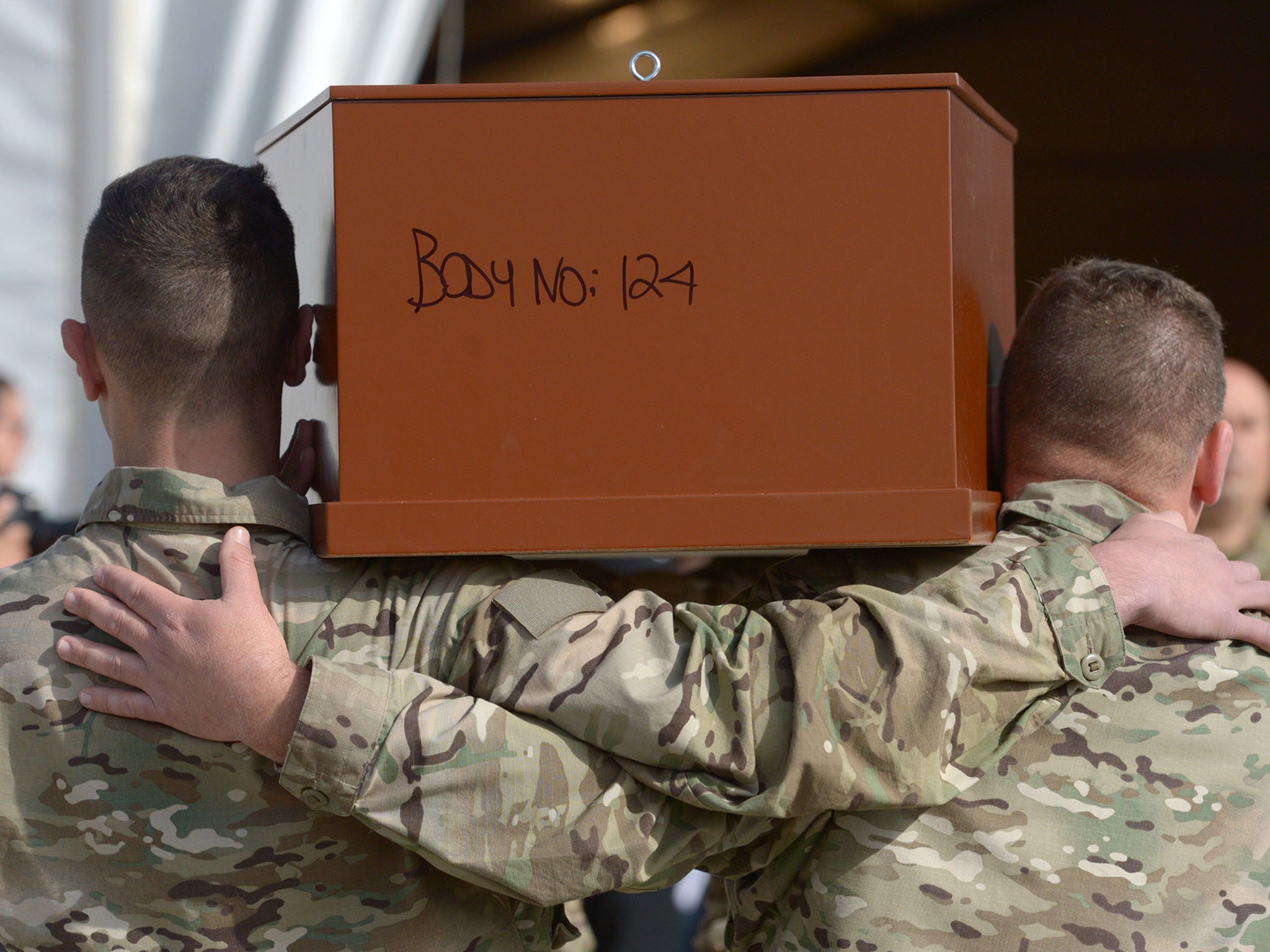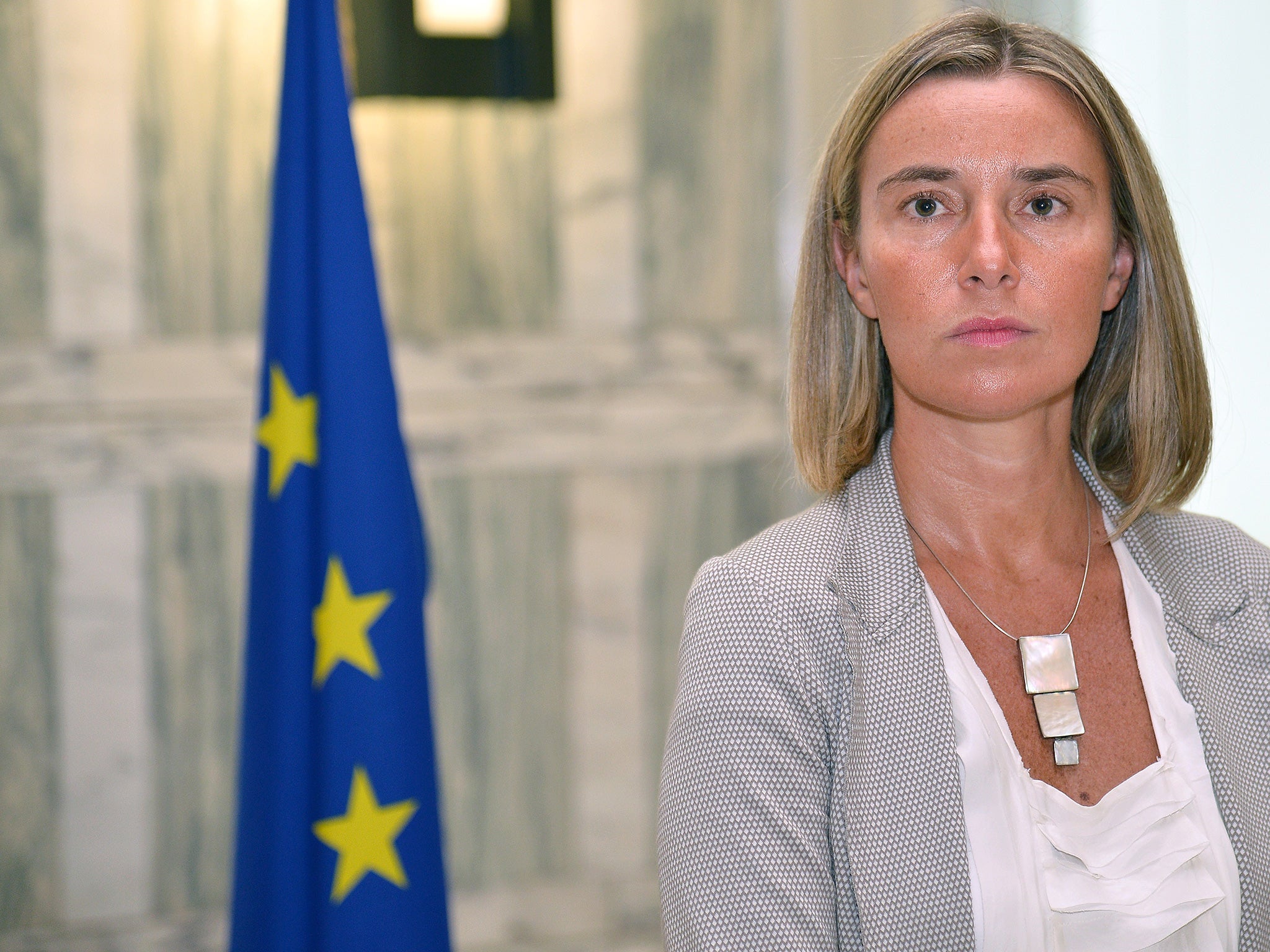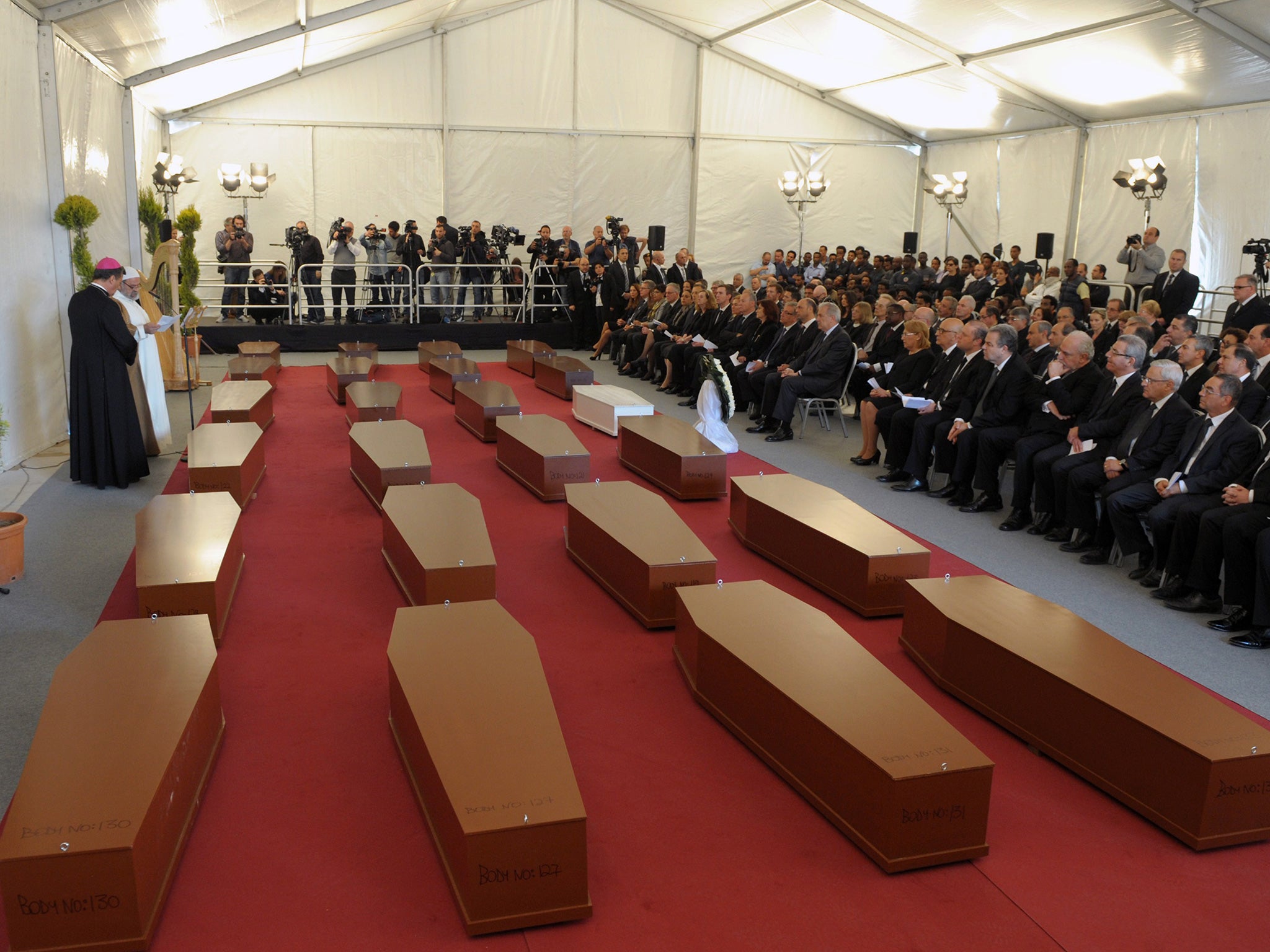Migrant crisis: EU leaders declare war on people traffickers as leaders vow to 'identify, capture and destroy' their vessels
The budget for the Triton border force that patrols the Mediterranean Sea will triple in size to €9m a month, but campaigners are not impressed

Your support helps us to tell the story
From reproductive rights to climate change to Big Tech, The Independent is on the ground when the story is developing. Whether it's investigating the financials of Elon Musk's pro-Trump PAC or producing our latest documentary, 'The A Word', which shines a light on the American women fighting for reproductive rights, we know how important it is to parse out the facts from the messaging.
At such a critical moment in US history, we need reporters on the ground. Your donation allows us to keep sending journalists to speak to both sides of the story.
The Independent is trusted by Americans across the entire political spectrum. And unlike many other quality news outlets, we choose not to lock Americans out of our reporting and analysis with paywalls. We believe quality journalism should be available to everyone, paid for by those who can afford it.
Your support makes all the difference.The European Union has effectively declared war on people traffickers blamed for the deaths of hundreds of migrants in the Mediterranean, by vowing to “identify, capture and destroy” their vessels.
At an emergency summit meeting called after more than 800 migrants drowned off Libya on Sunday, EU leaders decided to send in extra ships, planes and helicopters to help rescue people from the smugglers’ overcrowded and dangerous vessels.
The UK committed to sending three ships to the Mediterranean with Germany and France each contributing two, along with more vessels and helicopters from other states. The budget for the EU’s border force, Triton, that patrols the Mediterranean will triple in size to €9m (£6.5m) a month. Leaders also assigned the EU foreign policy chief, Federica Mogherini, to lead diplomatic negotiations to allow Europe to take military action against the boats used by traffickers.
However, the Refugee Council condemned the new measures, saying “smashing the smugglers” might sound good but it would not help the migrants if they were sent back to be “beheaded, butchered or shot” in Africa. And Amnesty International dismissed the deal as a “face-saving not a life-saving operation”.

David Cameron, speaking after the meeting, said: “What’s emerging is what we need, which is a comprehensive plan, going after the criminal gangs, going after the traffickers, going after the owners of the boats – potentially taking action there as well and stabilising the countries from which these people are coming.”
The European Council said: “The European Union will mobilise all efforts at its disposal to prevent further loss of life at sea and to tackle the root causes of the human emergency that we face, in co-operation with the countries of origin and transit.
“Our immediate priority is to prevent more people from dying at sea. We have therefore decided to strengthen our presence at sea, to fight the traffickers, to prevent illegal migration flows and to reinforce internal solidarity and responsibility.”
The Council said it would “undertake systematic efforts to identify, capture and destroy vessels before they are used by traffickers”. Various countries have suggested that boats could be sunk in Libyan habours, from where most leave for Lampedusa, the small Italian island near by.
It is likely that any military action would need backing from the United Nations.
A draft of the statement said that just 5,000 migrants would be offered resettlement across the EU, but this figure was dropped at the summit with the number instead left open-ended after several member states insisted that it should be higher.
The EU leaders also agreed to tackle “instability” in Libya which had created “an ideal environment for the criminal activities of traffickers” and take steps to address “conflict and instability as key push factors of migration, including in Syria”.
Mr Cameron stressed that those rescued from the sea by the Royal Navy would not be brought to the UK. “I think it’s right for Britain to step forward, for the Royal Navy to play a role. They will be saving lives, not offering asylum in the UK,” he said. “That’s the role we can play in the immediate term but a comprehensive strategy is what in the end will make the difference and solve this problem.”
The EU faced international condemnation after member states stopped funding an Italian-led search and rescue operation known as Mare Nostrum.
The leaders of Germany and France admitted mistakes had been made.
.
The German Chancellor, Angela Merkel, said: “First and foremost now, we have to save lives and take the right measures to do so. We want to move quickly … For Germany I can add: if it turns out that the funds are not sufficient we will have to talk about it again. Money should be no object here.”
And the French President, Francois Hollande, added: “Right now it’s a question of fixing yesterday’s errors.”
With more than 1,700 migrants feared drowned already this year, the Refugee Council, a British charity, said the measures agreed in Brussels would not help those currently at risk making the perilous crossing in overcrowded and unseaworthy vessels.
Its chief executive, Maurice Wren, said the refusal of countries like Britain to offer asylum to the refugees was effectively slamming the door in their faces.
“European governments had the chance to step up to the plate and get serious about saving lives instead of just talking about it. Instead, they’ve tried to save political face by attempting to deal with this problem at arm’s length,” he said.
“Patrolling the Mediterranean and smashing the smugglers may sound like the priority, but what will become of those who are fleeing for their lives right now if we aren’t prepared to provide them with alternative routes to safety? What’s the use of stopping people drowning on our doorstep just to watch them being beheaded, butchered or shot in northern Africa?
“The UK Government speaks about our proud tradition of protecting refugees, yet when the Syrians and Eritreans come knocking on the door of Europe begging to be protected, we slam it in their faces.”

Brendan Cox, of Save the Children, said: “The deal on search and rescue is a case of two steps forward, one step back. The commitment to triple Triton’s budget and national offers of significant new search-and-rescue capacity are critical breakthroughs.
“But fudging the question of Triton’s mandate isn’t good enough. EU leaders need to clear this up within hours... Europe took a small step back from the moral abyss today, but it needs to do much more in the coming hours to provide clarity.”
John Dalhuisen, of Amnesty International, said: “What we witnessed today in Brussels was a face-saving not a life-saving operation.”
In memoriam: Funerals held in Malta
Hundreds of people, including European officials, attended funerals in Malta for some of the migrants who drowned after the boat they were on capsized off the coast of Libya over the weekend and left around 800 dead.
Two-dozen caskets containing the only bodies recovered from the weekend capsizing were laid out for a memorial service on the grounds of Malta’s main hospital. They were later buried at the island nation’s largest cemetery.
None of the bodies was identified: one casket had “No 132” scrawled on it, referring to the number of the DNA sample taken from the corpse in case a relative ever comes to claim it.
AP
Join our commenting forum
Join thought-provoking conversations, follow other Independent readers and see their replies
Comments